Last summer, I took a four day hike through the high backcountry of the Alpine Lakes Wilderness Area in the Washington Cascades. I’m an experienced mountaineer, accustomed to rugged terrain and steep slopes, so I was impressed when after a long day and miles of off-trail travel I heard the voices of young teenage boys wafting toward me from near the Tank Lakes. These remote tarns are in a place that feels like God’s own patio—clean-polished stone slabs holding aloft crystalline ponds that reflect the surrounding summits of black rock and glacier ice.
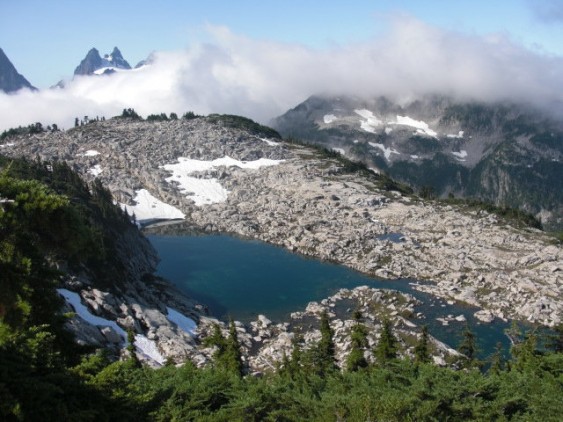
I later met the intrepid boys, expecting them to be a group from the high-priced and famously hardcore National Outdoor Leadership School. Instead, I found a dozen teens many of whom had never previously camped a night in their lives. One of their leaders told me they were part of the BOLD Mountain School—a nonprofit program of Seattle’s Metrocenter YMCA. BOLD immerses urban kids, especially disadvantaged ones, in the challenges and splendor of big wilderness. This program is not just a matter of summer fun. It’s a transformative experience; it changes lives.
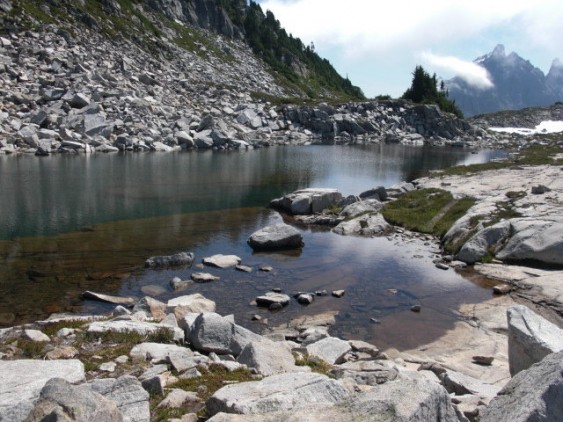
BOLD takes youngsters, like 13-year-old Antonio, on week-long adventures. I learned about Antonio later, through BOLD’s leadership, but his life has been like those of many of the boys I met at Tank Lakes. He is coming up the hard way: he has never had a relationship with his father. His mom is alone, and she works hard to support him and his younger sibling, who he has to watch much of the time. BOLD challenged him physically and emotionally, and it rewarded him spiritually. Antonio’s grandmother wrote to BOLD’s director that Antonio had come home a different person. He had returned a young man: quietly confident, calm, self-assured. His grandmother also reported that Antonio said of the vistas and stars he had seen that he had “never known anything could be so beautiful.”
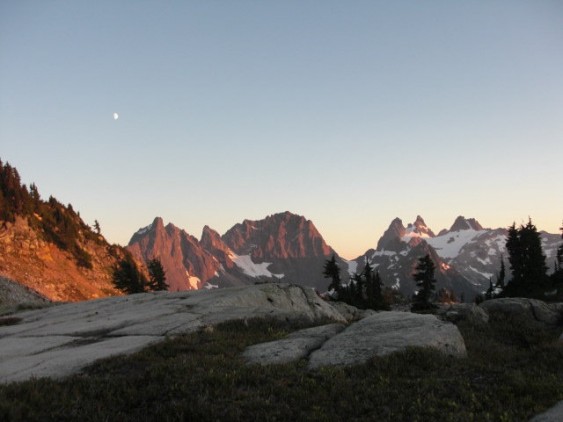
Experiences like this are blessings widely shared among young northwesterners from well-off families. I count my own such youthful passages as among the reasons I have devoted my adult life to building a sustainable Northwest. In fact, such experiences are so reliably transformative that those who attend the region’s exclusive private schools and colleges go on wilderness trips almost as parts of the curriculum. Many well-funded church groups lead them, too. For poor and working-class northwesterners, though, being a BOLD Mountaineer is a rare and exceptional gift—an antidote to the “nature deficit disorder” that author Richard Louv described in his book Last Child in the Woods.
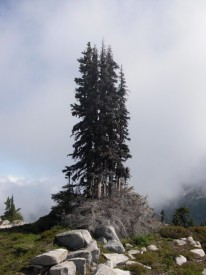
BOLD, furthermore, is just one of several such nonprofits, organizations that expose the Northwest’s less-fortunate to their natural birthright as northwesterners, a region with dramatically more wilderness than anywhere in North America other than Alaska and the Canadian north. As BOLD does for Puget Sound area young people, so Big City Mountaineers does for Oregon’s and Peak 7 Adventures does for Spokane’s. All three provide this niche service at no cost to public treasuries, relying instead on charitable contributions and modest participant fees to deliver young men and women to places like the one pictured on the right, also in the Alpine Lakes.
My chance encounter with those BOLD mountaineers was in August of 2010, and I thought little more about it until this month, when I learned that the BOLD Mountain School has been banned from the Tank Lakes and the rest of the Northwest’s National Forests. NOLS, private schools, and college outing programs are welcome. They may, in John Muir’s words, “climb the mountains and get their good tidings.” But Antonio’s type? They are forbidden entry to places like Azurite Lake (pictured below), a short day’s travel from the Tank Lakes.
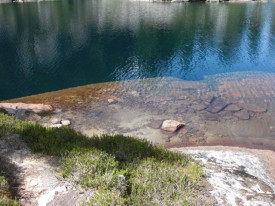
The reason?
The YMCA does not have a guide/outfitter permit to lead such trips. Schools don’t need them. Volunteer-led groups don’t either. And NOLS got its permit years ago. But BOLD does not have one, and it cannot get one. The Mt. Baker-Snoqualmie National Forest is no longer issuing them. Neither are any of the 30-odd other Northwest National Forests, from the Siskiyou in southern Oregon to Idaho’s Nez Perce to Alaska’s giant Tongass.
Just so, Big City Mountaineers cannot get permission to take trips into any National Forest in Oregon. Spokane’s Peak 7 cannot take its clientele of largely Hispanic, low-income middle schoolers into National Forests in Idaho or Washington.
It would be easy at this point to rail against the USDA Forest Service, but doing so would miss the point. The Forest Service, starved for funding to support its diminished and beleaguered staff and buffeted by relentless lawsuits, is following its rules and regulations as best it can, in particular its 2008 Outfitter and Guide Regulations. Those rules tie rangers’ hands.
Here’s part of a letter that the Mt. Baker Snoqualmie National Forest’s District Ranger Jim Franzel sent to the Seattle chapter of the Boy Scouts in May of 2010. At the time, the Boy Scouts were offering trips led by (lightly) paid camp counselors on National Forest land. The letter ordered them to halt such trips:
At this time, the Mt Baker-Snoqualmie National Forest is not issuing new outfitter guide permits, which would be needed to conduct guided activities on the Forest.
This Forest [decision] is due to budget limitations, workloads, priorities and need. We would have to conduct a “Needs Analysis” to determine whether the activities are even warranted or needed in this area. We would also have to perform some level of National Environmental Policy Act (NEPA) analysis for the affected area. In order to conduct these analyses it takes many “specialists”. Specialists would be needed to determine the effects of the proposed activities for soils, water, wildlife, botany, recreation, socio/economic, Threatened & Endangered Species, etc. It is expensive and time consuming, all of which the Forest does not have the funding and resources to do at this time.
We also know that there are other interested parties out there who would also like to secure guiding permits. If and when these analyses could be performed, and if approved to conduct such activities, we would need to publicly advertise and solicit the opportunity through a prospectus, requesting an outfitter guide application, an operations proposal and a business plan. Potential applicants would be evaluated as to which one best meets the operational purpose and need.
That’s right. Under the USDA Forest Service’s 2008 Guide and Outfitter Regulations and other Forest Service rules, the Boy Scouts or the YMCA or any other group that pays its trip leaders from fees collected in part from participants needs to be licensed as a commercial guiding service. To issue a guiding license, the Forest Service would first need to do “Needs Analysis.” (Who could doubt that there’s a real and pressing need for the kinds of transformative experiences that inspired Antonio?) Then, the Forest Service would have to do a NEPA assessment. They would have to send biologists into the mountains to analyze the likely impacts on soil, water, and endangered species of adding a few dozen boys like Antonio to the way trails and high routes their richer compatriots already traverse each year. USDA specialists would also have to analyze the recreation and socio/economic impacts of Latino middle schoolers from Spokane sleeping under the stars and learning to tie hooks onto fishing lines beside lakes like Angeline (below), two ridges over from the Tank group.
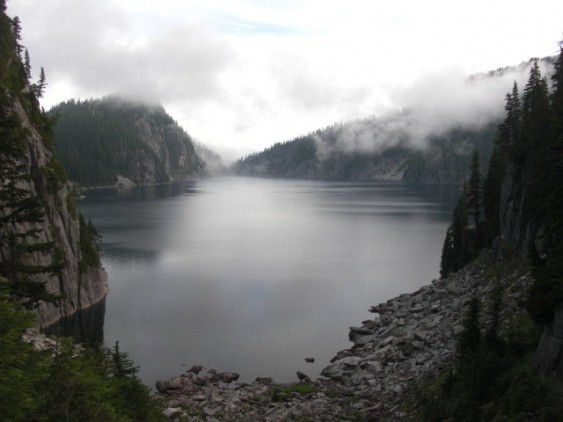
As it stands, BOLD, Peak 7, and Big City Mountaineering are currently planning to drive their teens to the Olympic, Mt. Rainier, and North Cascades National Parks. For Spokane’s Peak 7, the extensive wild lands of northern Idaho spread out for scores of miles before them; instead, the program will haul its participants nine hours across the state of Washington to the Olympic National Park. Why all the way to the Olympics? Because unlike National Forests, the National Parks are as welcoming as could be to BOLD and its peers.
To untie this absurd regulatory tangle, the Forest Service could amend its Guide and Outfitter Regulations to exempt nonprofit youth-service organizations. Or it could photocopy the National Park Service’s rules.
Sightline’s Making Sustainability Legal project identifies specific regulatory barriers to affordable, green solutions. If you’ve come across such an obstacle, please let us know by writing Eric (at) Sightline (dot) org.
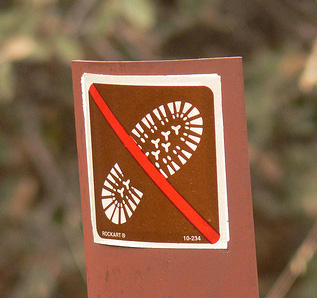

Comments are closed.